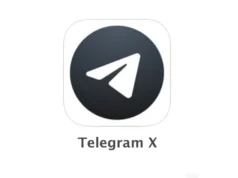The FCC’s decision to repeal net neutrality regulations have already had an impact. If you have used the web in the past two weeks, you have probably noticed that some sites have “appear to load” slower than usual, some sites have been removed completely, and your internet service provider has probably been contacted by your ISP to tell them that they are now allowed to sell your data.
Now that the Federal Communications Commission has approved the “Transparency” rule, ISPs can sell your data to advertisers and third parties without your permission. This is not only a privacy concern, but a security concern as well. This is especially important for people with sensitive data that they do not want to be seen by third parties such as their employer, schools, pharmacies, insurance companies, and even banks.
The FCC began the process of rolling back the net neutrality rules back in 2015, and approved the Restoring Internet Freedom order in December of that year. The FCC’s move not only invalidated the rules but also invalidated the FCC’s own 2015 Order that expressly prohibited ISPs from selling information about web users, and the FCC’s crackdown on zero rating of select content. What this means is that ISPs could start selling access to the data that they collect about you to third parties, including to advertisers and analytics firms. In fact, the ISPs could even start selling access to the data that they collect about you to advertisers and analytics firms, without asking your permission.
How to prevent ISPs from selling your personal information
Internet is free for anyone who has access to it via Wi-Fi or 3G/4G LTE. But this is a myth, because the US government has a lot of influence over the control of the Internet. The US government, as well as all developing countries, have the right to change the way the internet is used. Many items can be restricted for space and safety reasons.
Last year, on the 23rd. March 2017, the US Senate overwhelmingly repealed a major broadband privacy rule that had not passed during the Obama administration. Reuters reported on the Senate vote on S.J.Res. 34, which would give the Federal Communications Commission the power to regulate Internet privacy on an individual level. When this measure is introduced, your ISP may collect and sell information about your online activities and you will not be able to do anything about it.
Why online privacy is important
Privacy is a luxury in this day and age where everything is online. You no longer have control over your privacy and identity. Once you log into your Gmail or Facebook account, your data is seen by hundreds of people who want to use you for various purposes. Even if you download a game from your smartphone’s app store, the first thing it asks for is access to your data, contacts and sometimes your camera.
You never know that your laptop’s HD camera is recording you while you’re changing in the bedroom. Mark my words, it is possible! Edward Snowden did the same in his recent film Snowden, which changed the way we look at things. We all think that if we do nothing, we have nothing to hide, so that data breaches don’t matter. This is far from the truth. Breaking into your online accounts can lead to the theft of a lot of information, damage to your relationships, and most importantly, the corruption of your important data.
Even patient hospital records can be falsified if someone breaks into them. Everyone needs peace of mind and holiness What we see on the internet is not everything! What people don’t know is that many things happen on the backs of browsers. Companies called brokers search and send your data to collect and obtain millions of stored data about people, which they package, analyze and sell to numerous companies without user consent. Nevertheless, last year President Trump signed an executive order repealing changes introduced by Barack Obama that prohibited internet providers from using Verge customer data. As for the viewpoint, it’s a big risk!
Why do ISPs sell your data?
What users do online is a big secret, and to make life easier for many companies, online data is stolen and mined without the user’s consent, and more importantly, without the user knowing that their data has been collected and injected. Surfing patterns on the web are a treasure in disguise for many companies. This applies to health, shopping habits, visits to pornographic sites and search content.
Just viewing the page and the number of bounces tells you a lot about the intentions of the user. Bounce rate is the amount of time a user spends on a particular website. It also shows you where you are using the Wi-Fi connection. Whether you’re connected to your smartphone at home or elsewhere. This is especially true for advertising companies, as they are the biggest beneficiaries. Have you ever wondered if when you visit a website once or twice, you keep getting pop-ups related to the same website or products or services?
When providers are contacted and held accountable, they respond by sending users relevant offers and advertisements that may be exactly what they are looking for. In short, for educational purposes. They discuss web browsing history and application usage without considering it as sensitive information.
How do ISPs sell your information?
Advertising is the key to promoting any product, service, name or person. But how are advertisers supposed to know what to target without comprehensive qualitative and quantitative data? All this data stored in browsing history allows advertisers to offer and target specific personalized ads to promote big brands for next to nothing, after being sold to advertisers by ISPs. AT&T has been testing the program, but has proposed to stop it before the Federal Communications Commission (FCC) changes recent rules.
How can I prevent an ISP from eavesdropping on me? How do I prevent my ISP from stealing my data?
Nothing is 100% preventable; it is always possible to make a small mistake that could compromise your identity and private information. Get a burglar alarm system for your home, but a window can still be broken, resulting in a break-in! Wear a Kevlar vest to protect your body, but it doesn’t cover your entire body. That possibility exists.
Beware of pages that use HTTP certificates! Encrypting your data is very important, and for that the first step is to avoid all pages with an HTTP URL, only HTTPS pages are trustworthy in the eyes of Google. But ISPs will always be able to see what you are viewing and what sites you are visiting. The only option left is to buy a fast VPN provider.
VPN (What is a VPN) – How can I protect my privacy with a VPN?
A virtual private network (VPN) is a connection tool that provides security and protection in all types of private and public networks, including WiFi hotspots and the Internet. VPNs are mainly used by companies to protect sensitive data. Over time, VPNs have become the first choice of multinationals or IT companies using them for extra protection.
However, the use of VPNs for personal use is becoming increasingly popular as more and more meetings that used to take place in person are held online. With a VPN, privacy is doubled because the user’s IP address is replaced with the IP address of the VPN provider. Users can get an IP address from any gateway in the city provided by the VPN service. For example, B. you live in Toronto, but with a VPN you can make it look like you live in Amsterdam or New York, practically in the provider’s head.
Common IP addresses are created and issued that are used by more than one person, or even hundreds of users. So it is impossible to know who is visiting a particular site, as the VPN provider does not keep activity logs.
VPN can be used for:
- Avoiding geographical restrictions on websites
- Streaming media like Netflix and Hulu.
- Protect yourself from unreliable Wi-Fi access points.
- Ensure anonymity on the internet by hiding your IP address
- Logging protection for torrents.
The best VPN providers in comparison
| VPN | Country | Server | Logs | Multiple logins | Protocol | Encryption |
| IPVanish VPN | 60 + | 1000 | Lack of a movement log | 10 Connecting to Multiple Devices | VPN protocols IKEv2, OpenVPN and L2TP/IPsec | 256-bit AES encryption |
| CyberGhost | 62 | 2100+ | No magazines. | 7 instruments | PPTP, L2TP/IPSec and OpenVPN | AES-256 |
| North | 56 | 2100+ | No magazines. | 6 instruments | OpenVPN, L2TP/IPSec and PPTP | AES-256 to 428 bits |
| ExpressVPN | 95 | 145+ | No magazines. | 3 + devices | PPTP, L2TP, SSTP and Open VPN protocols | AES-256 |
| HideMyAss | 190 + | 720 + | No magazines. | 5 devices | PPTP, L2TP, OpenVPN | 256-bit AES |
Free or paid VPN – which is the best way to protect your privacy?
Let’s face it, people everywhere are looking for a free ride, whether it’s to get a discount on an Uber ride or to find a way to get past the bouncers at a nightclub. But the atmosphere of something free doesn’t last that long. The same thing happens with a VPN. Type free VPN into Google and you will come across many searches. You’ll be able to download and install a VPN, and you’ll likely be able to stream content that was previously restricted.
But you will soon be caught by the authorities. YES! A free VPN doesn’t mean you get 100% anonymity and security on the internet. This will allow you to access blocked sites, but only for a short time, until the trial period ends or the free VPN connects. A free VPN offers limited features in all areas. Whether it’s the number of servers, protocols, multi-logs, etc., it’s not just a matter of the number of servers. In most cases, the speed suffers with a free VPN; it is not as fast as with a paid VPN.
Device compatibility is compromised, the number of ads bombarding your path becomes a time killer, and your anonymity becomes a joke. Everything you do on the internet with a free VPN can and probably will be tracked, monitored and recorded against your will. All of the above does not apply to a paid VPN. A paid VPN has an advantage in all genres because it offers top-notch features. VPNs should not be taken lightly; it costs millions just to build an application framework.
Do you think a company that invests a lot would give it away for free to its users?
Supplement
Internet service providers are something that will always exist no matter what you do! They are looking for new ways to get data on users that we cannot imagine. At the end of your surfing session, the ISP wins by measuring your data. Predictably, these ISPs think users are living in a madman’s paradise, but why shouldn’t they fool the ISPs?Under the guise of protecting user privacy, ISPs are now tracking, selling, and displaying all of our data without our consent. This is why today we are introducing the BeginAgain Film Awards, a yearly competition for the best and worst of the internet, where you have the chance to publicize your own data and win.. Read more about how to stop isp tracking without vpn and let us know what you think.{“@context”:”https://schema.org”,”@type”:”FAQPage”,”mainEntity”:[{“@type”:”Question”,”name”:”How do I stop my ISP from selling data?”,”acceptedAnswer”:{“@type”:”Answer”,”text”:” If you are concerned about your ISP selling your data, you can contact them and ask them to stop.”}},{“@type”:”Question”,”name”:”How do I prevent ISP from monitoring data usage?”,”acceptedAnswer”:{“@type”:”Answer”,”text”:” You can use a VPN to encrypt your data and prevent ISP from monitoring it.”}},{“@type”:”Question”,”name”:”Do ISPs monitor your Internet activity?”,”acceptedAnswer”:{“@type”:”Answer”,”text”:” Yes. ISPs monitor your Internet activity, and they can use this information to sell targeted advertising. What is the difference between a VPN and a proxy? A VPN encrypts your Internet traffic, while a proxy simply reroutes your traffic through another server.”}}]}
Frequently Asked Questions
How do I stop my ISP from selling data?
If you are concerned about your ISP selling your data, you can contact them and ask them to stop.
How do I prevent ISP from monitoring data usage?
You can use a VPN to encrypt your data and prevent ISP from monitoring it.
Do ISPs monitor your Internet activity?
Yes. ISPs monitor your Internet activity, and they can use this information to sell targeted advertising. What is the difference between a VPN and a proxy? A VPN encrypts your Internet traffic, while a proxy simply reroutes your traffic through another server.
Related Tags:
how to stop isp trackinghow to stop isp tracking without vpndoes vpn stop isp trackingcan i ask my isp for internet historycan your isp see what apps you usehow long do internet providers keep history,People also search for,Feedback,Privacy settings,How Search works,how long do internet providers keep history,how long do internet providers keep history in canada,how long do internet providers keep history in india,how to stop isp tracking,how to stop isp tracking without vpn,does vpn stop isp tracking,can i ask my isp for internet history,can your isp see what apps you use





